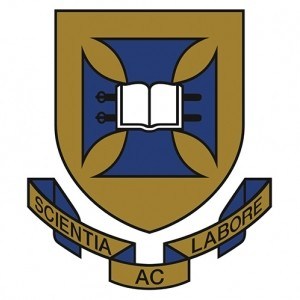Photos of university / #ouranu
The MAppEc rigorous training in econometric and quantitative methods will attracts outstanding students to the University. In particular influential economic policy advisors in prominent organs of national executive government (especially PM&C and Treasury) have found very appealing the way the MAppEc provides a training in putting national policy issues in a quantified frame.
Learning Outcomes
Upon successful completion, students will have the skills and knowledge to:
- access the technical academic literature in most fields of study in applied economics and econometrics;
- be capable of undertaking independent research in applied economics and econometrics at the graduate level and provide intuition for the results;
- have the capacity to analyse the economic effects of policy changes in several fields of economics.
A Bachelor degree or international equivalent with an average mark of at least 65%
Applicants with a Bachelor degree or Graduate Certificate in Economics may be considered for 24 units (one semester) of credit, comprising:
- ECON7073 Microeconomic Principles for Economic Policy
- ECON7074 Macroeconomic Principles for Economic Policy
- EMET7001 Introduction to Analysis of Economic Models and Data
- STAT7055 Introductory Statistics for Business and Finance
Applicants with a Bachelor Honours degree or Graduate Diploma in Economics may be considered for credit for 48 units (1year) of credit, comprising:
- ECON7073 Microeconomic Principles for Economic Policy
- ECON7074 Macroeconomic Principles for Economic Policy
- EMET7001 Introduction to Analysis of Economic Models and Data
- STAT7055 Introductory Statistics for Business and Finance
- ECON8025 Diploma Microeconomics
- ECON8026 Diploma Macroeconomics
- EMET8005 Econometric Models and Introductory Econometrics
- ECON6015 Optimisation Techniques for Economists
Students must achieve a minimum 70% weighted average mark in the initial component to continue to the concluding component. Students who do not achieve a minimum 70% weighted average mark in the initial component will be transferred to the Graduate Diploma of Economics.
The Master of Applied Economics requires the completion of 96 units, which must consist of
48 units from the completion of the following initial component:
48 units from completion of the following compulsory courses:
ECON6015 Optimisation Techniques for Economists
ECON7073 Microeconomic Principles for Economic Policy
ECON7074 Macroeconomic Principles for Economic Policy
ECON8025 Diploma Microeconomics
ECON8026 Diploma Macroeconomics
EMET7001 Introduction to Analysis of Economic Models and Data
EMET8005 Economic Models and Introductory Econometrics
STAT7055 Introductory Statistics for Business and Finance
48 units from completion of the following concluding component
12 units from the following compulsory courses:
EMET8002 Case Studies in Applied Economic Analysis and Econometrics
EMET8012 Business and Economic Forecasting
6 units from completion of a course from the following list:
EMET8001 Applied micro-econometrics
EMET8010 Applied Macro and Financial Econometrics
30 units from completion of courses from the following list:
ECHI8007 Advanced Topics in Poverty, Public Policy and Development
ECHI8011 Classic Works of Economic Theory
ECON8001 Topics in Macroeconomics
ECON8002 Applied Welfare Economics
ECON8003 Economic Policy Issues
ECON8006 International Trade Theory
ECON8008 Japanese Economy and Economic Policy
ECON8009 International Monetary Economics
ECON8010 The Economics of Taxation and Redistribution
ECON8013 Mathematical Techniques in Economics I
ECON8014 Mathematical Techniques in Economics II
ECON8015 International Economics
ECON8018 Cost-Benefit Analysis
ECON8021 Topics in Microeconomic Theory
ECON8034 Public Sector Economics (G)
ECON8037 Financial Economics
ECON8038 Industrial Organisation
ECON8039 Health Economics
ECON8040 Resource & Environmental Economics
ECON8041 Labour Economics and Industrial Relations
ECON8047 Law and Economics
ECON8049 Southeast Asian Economic Policy and Development
ECON8050 Economic Growth
ECON8053 Strategic Thinking: An Introduction to Game Theory
ECON8070 Political Economy of Macroeconomic Policy
ECON8091 The Economy, Politics and the State
EMET8010 Applied Macro and Financial Econometrics
EMET8012 Business and Economic Forecasting
EMET8014 Fundamentals of Econometric Methods
Students must achieve a minimum 70% weighted average mark in the initial component to continue to the concluding component. Students who do not achieve a minimum 70% weighted average mark in the initial component will be transferred to the Graduate Diploma of Economics.
ANU offers a wide range of scholarships to current and future students to assist with the cost of their studies. The University is committed to enabling all students, regardless of their background, to achieve their best at ANU and realise their potential.
Eligibility for ANU scholarships varies depending on the specifics of the scholarship and can be categorised by the type of student you are. Specific scholarship application process information is included in the relevant scholarship listing.
Students are required to obtain an average of 70% in ECON8025, ECON8026, ECON6015 (ECON8013 in 2015) and EMET8005 to progress to the 2nd year of the Master of Applied Economics. Students who do not meet the 70% progression requirement may transfer to the Master of Economic Policy.
For Domestic Students applying through UAC: If you have completed an overseas qualification, please send a scanned copy of your original testamur (graduation certificate) and academic transcript through to info.cbe@anu.edu.au. The scanned documents should be in colour and unaltered in size. Please include your name and UAC number in the email.





